Celebrating tribal communities and students during Native American Heritage Month
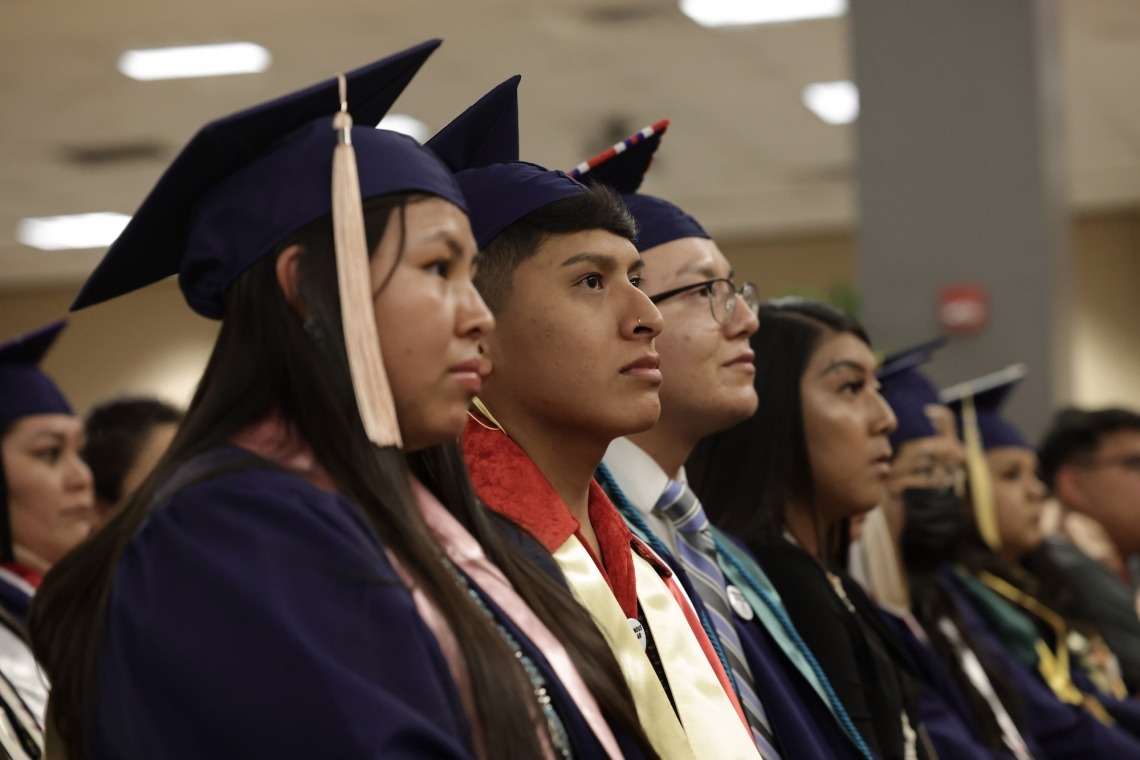
Graduates listen to speakers at the convocation ceremony for Native American students on May 6. (Photo by Chris Richards/University Communications)
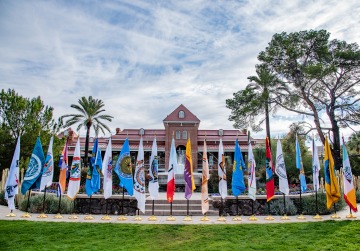
Arizona is home to 22 federally recognized tribes, with Tucson being home to the O'odham and the Yaqui.
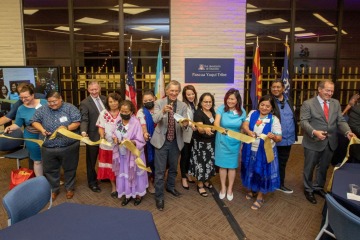
Pascua Yaqui Tribe and University of Arizona leaders cut a ribbon to celebrate the grand opening of the University's newest microcampus, the first to serve an Indigenous tribe. (Photo by Chris Richards/University Communications)
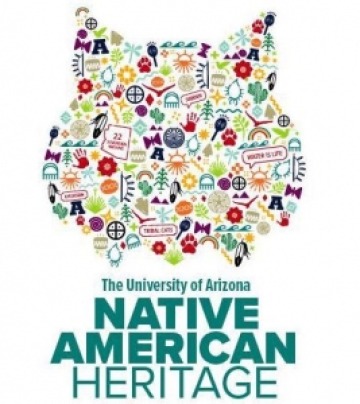
Merchandise featuring the Native American Heritage Month cultural logo, including t-shirts and decals, are available at the University BookStores or in the online shop.
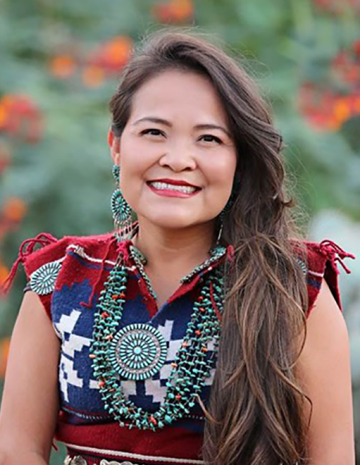
Karletta Chief, University Distinguished Outreach Professor in the Department of Environmental Science
The University is honoring the culture and contributions of the Indigenous community during Native American Heritage Month. While the celebration runs through November, the University works year round with Native American communities to provide new opportunities to Indigenous faculty, students, entrepreneurs and others.
The commitment to Arizona's Native American communities and students is part of the Arizona Advantage pillar of the University's strategic plan and reflects the University's role as a land-grant institution. Last November, a survey by the National Science Foundation ranked the University No. 1 in the number of doctoral degrees awarded to Native American students.
In June, the University announced the creation of the Arizona Native Scholars Grant program, which covers main campus tuition and mandatory fees for undergraduate students from the state's 22 federally recognized Native American tribes. More than 400 students enrolled at the University last year meet the criteria for the program.
In September, the University held a grand opening for a microcampus on Tucson's far southwest side that serves the Pascua Yaqui Tribe, which will allow students living there to access University technology, research and tutoring services.
One year earlier, the University launched the Indigenous Resilience Center – an interdisciplinary center that works directly with Native American nations to address environmental challenges. Faculty at the IRC lead research projects and design courses taking on topics such as natural resource management, environmental health and research ethics.
The center is led by Karletta Chief, University Distinguished Outreach Professor of environmental science in the College of Agriculture and Life Sciences. Chief, who is Diné, is also among five women to be honored with 2022 Women in Discovery awards by WINGS WorldQuest, a global organization that supports women leaders in science who are working on solutions to global problems. The organization praised Chief for her work in areas including water policy, mining, solar energy and food safety.
The University is looking to boost entrepreneurship and economic growth in Arizona's tribal communities through the Native FORGE program, which provides training to Native American entrepreneurs who are nominated by their tribal nations using the resources of Arizona FORGE – or Finding Opportunities and Resources to Grow Entrepreneurs – which is a unit of Research, Innovation & Impact.
On Friday, the University will hold its second annual Tribal Leaders Summit at the Phoenix Biomedical Campus. The summit, focused on the theme “Advancing Tribal Health,” will bring together leaders from tribes across Arizona, health care directors and University medical experts to explore ways that University programs and resources can better serve the health of tribal communities. The event, organized by the Office of Native American Advancement and Tribal Engagement, will include a roundtable event with tribal leaders and President Robert C. Robbins.
The campus community is invited to help celebrate Native American Heritage Month. Please check out the list below to see how you can participate.
- Merchandise featuring the Native American Heritage Month cultural logo, including T-shirts and decals, will be available at the University BookStores and in the online shop. Some of the proceeds will benefit Native American Student Affairs.
- Arizona Athletics will show its support throughout the month, with all student-athletes wearing Native American Heritage Month shirts during pre-game warmups and while sitting on the bench for all competitions. The department's Twitter and Instagram pages will feature interviews with Native American student-athletes.
- Athletics is partnering with Desert Diamond Casino, which is the official sponsor of the month's celebrations. The casino will award $1,000 CatCash gift cards to five Native American students during women's basketball games throughout the month. The Nov. 18 game against Loyola Marymount is Native American Heritage Night. Two hundred fans at that game will receive a free T-shirt courtesy of the casino, and there will be a special halftime performance from Native American "fancy dancer" and University student Nicolas Littleman.

